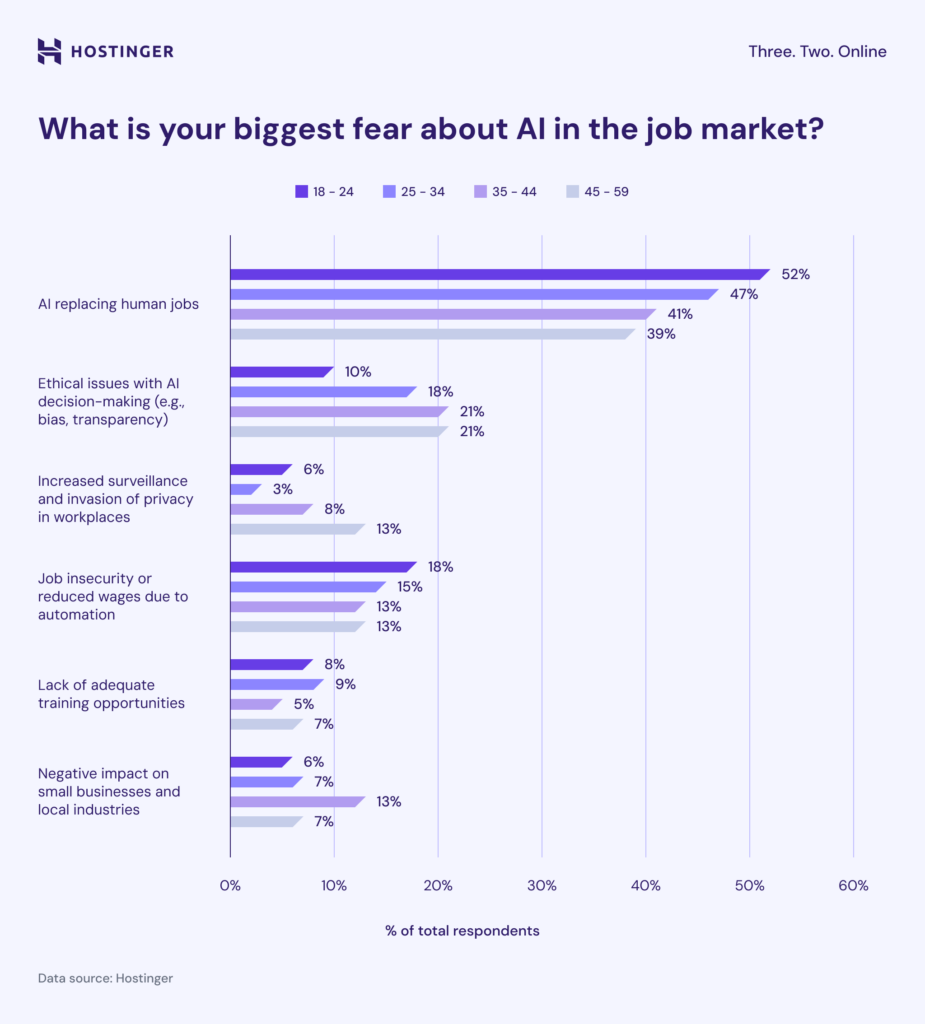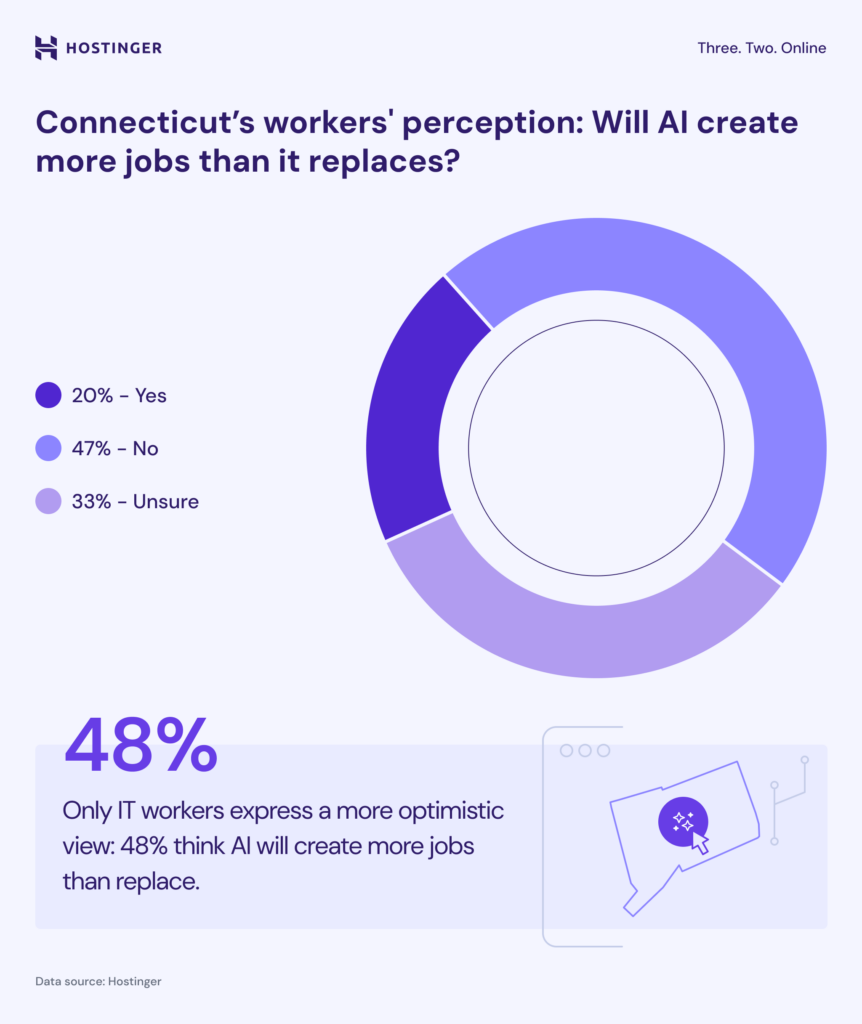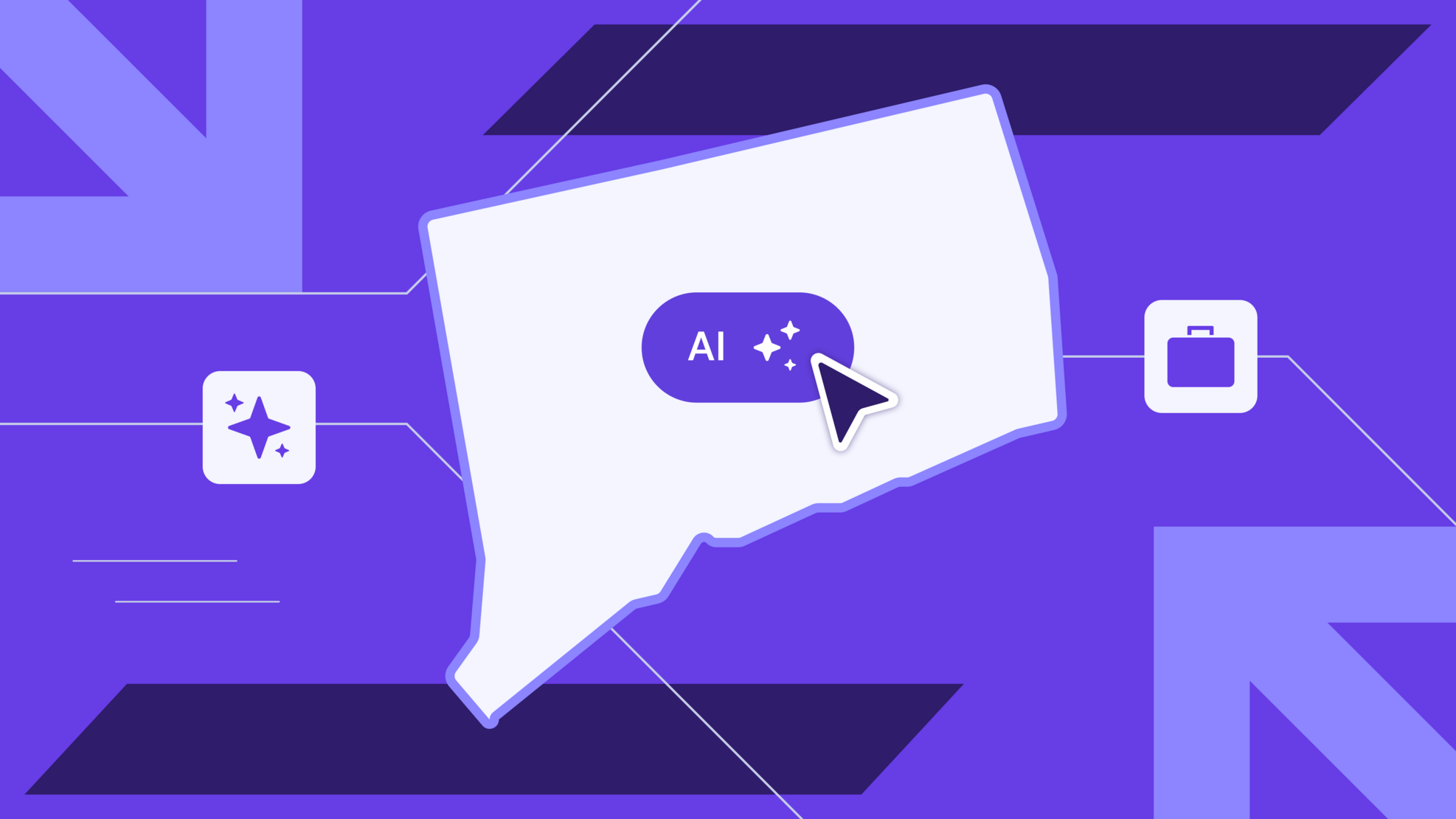How do Connecticut workers perceive artificial intelligence (AI)? Hostinger looked at key results from a survey about workers’ perceptions of AI’s relationship with the job market.
The survey focuses on workers’ AI-related fears, and their views on how AI will affect skills, knowledge, advancement, regulation, and the job market.
- 54% of Gen Z-ers fear losing their job to a machine
- Six out of 10 workers want to learn about AI
- Are workers comfortable with AI?
- 48% of IT workers think AI will create more jobs
- A third of workers expect better opportunities with AI
- 50% of workers claim AI is advancing too fast
54% of Gen Z-ers fear losing their job to a machine

Many Connecticut workers fear AI will replace human jobs. 43% of those surveyed worry technology will replace humans for some tasks. The survey reveals that younger generations fear this more than older generations. 51.6% of workers aged 18 to 24 view AI job replacement as a significant concern. However, only 39.3% of those aged 45 to 59 share this view.
Respondents in this New England state are also concerned about ethical issues and reduced wages, ranking second and third, respectively.
Six out of 10 workers want to learn about AI
Almost 60% of workers agree that they want to learn new tools and technologies as a result of AI adoption. Those in the tech and digital transformation industries largely agree that resumes should indicate AI skills. 73% of those in the information technology (IT) and finance workforces say upskilling and new learning are necessary.
50% of workers in healthcare, education, retail, non-profits, social services, government, and manufacturing sectors recognize the importance of learning about AI.
Are workers comfortable with AI?
Dozens of AI tools are available online, and since OpenAI’s ChatGPT launched in 2022, AI user growth has increased daily. In Connecticut, 28% of workers believe they possess more knowledge of artificial intelligence than the average person. Only 3.7% consider themselves experts in the field. The rest, almost seven out of 10 respondents, claim they know the basics of AI.
“AI is bringing changes to the world. It’s new and exciting, but for some people, it’s a topic of concern, which is natural. The main point here is to support each other and learn. Hostinger believes AI will democratize a lot of tools and information that used to cost a lot of time and resources. It is encouraging to see how people continue to adapt despite significant fears,” states Human Hardy, People Development Specialist from Hostinger.
48% of IT workers think AI will create more jobs

IT workers express a relatively optimistic view regarding AI’s impact on future job creation. Specifically, 48% of Connecticut’s IT workforce believes AI will generate more jobs.
Overall, only 20% of respondents believe AI will generate more jobs than it will displace across all state industries. Conversely, respondents reported:
- 47% believe artificial intelligence would not open up jobs
- 33% are unsure about it
A third of workers expect better opportunities with AI
AI’s impact on people’s perceptions varies, appearing more negative for some and more positive for others. In total, 34% believe this new technology will create better opportunities in the job market, while 24% predict a negative impact. The largest group, 42% of surveyed workers, expressed uncertainty.
The survey reveals that 70% of IT employees are optimistic about AI’s potential to improve the job market. Government and public administration (38%) and retail (42%) workers are the next most optimistic.
Conversely, at least 43% of workers in creative arts and design, finance, healthcare, manufacturing, and social services (including nonprofits) express hesitation regarding the role of artificial intelligence in reshaping the job market.
50% of workers claim AI is advancing too fast
Finally, the study investigated views on the speed of AI advancement and the adaptation period workers face. Half of the respondents believe artificial intelligence is advancing too rapidly for workers to adapt.
Overall, it is believed that AI will significantly impact jobs, and that workers’ adaptability will significantly shape the future of most industries. In this uncertain period, people’s motivation and perception may determine the pace of progress.
Connecticut’s business and economic environment clearly exemplifies trends in ‘white-collar’ states. Finance, insurance, investment, educational services, health care, and social assistance employees constitute over 60% of the Constitution State’s total workforce. According to the US Census Bureau, Connecticut’s employment rate is 63%, and the median household income is $91,000 per year. Although it is one of the smallest states in the country, these numbers are above the national averages.
Methodology
- The study gathered 400 responses during the first two months of 2025 and is part of the Decoding Trends series of short studies led by Hostinger.
- Take a look at the answers here.
The post Decoding Trends: Connecticut workers express AI fears and embrace learning appeared first on Hostinger Blog.



